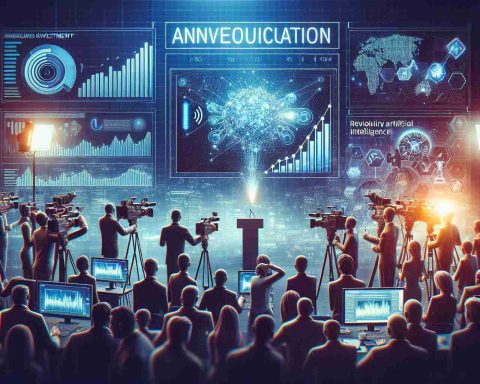On September 19 and 20, Rzeszów hosted the 24th Congress of Public Relations Professionals, bringing together over 200 industry experts from various sectors. The event, organized by Professor Dariusz Tworzydło, emphasized the integration of artificial intelligence (AI) within public relations practices. The opening remarks highlighted Rzeszów’s growing status as a globally recognized city for international conferences.
Throughout the congress, discussions centered on the impact of AI in PR. Experts argued that while AI can enhance efficiency in tasks such as research and content editing, it cannot fully replace the human touch required in emotional intelligence and creative thinking. Many professionals expressed concerns over using AI-generated content, feeling it could compromise authenticity and trust with audiences.
Another key topic was the collaboration with influencers. Industry leaders shared practical advice on achieving effective partnerships, cautioning against common pitfalls such as vague campaign goals and neglecting the individuality of influencer contributions.
The second day included thought-provoking sessions on emerging trends in PR and the crucial role of women in the industry. Panelists discussed the ongoing challenges faced by women in leadership and the importance of mutual support in the workplace.
The congress concluded with presentations that highlighted key findings on the usage of AI in PR, revealing a strong inclination among professionals to utilize AI as a supportive tool rather than a replacement. Overall, the congress served as a platform for knowledge sharing and forward-thinking strategies in public relations.
Exploring the Future of Public Relations: Insights from Rzeszów
On the heels of the successful 24th Congress of Public Relations Professionals held in Rzeszów, it’s essential to delve deeper into the future landscape of public relations (PR) and the evolving dynamics that shape this critical field. As the PR industry adapts to innovations and changing societal expectations, several pertinent questions arise that warrant exploration.
What are the emerging trends in public relations?
The congress illuminated key trends that are shaping PR, such as the rise of data-driven decision-making. With the proliferation of big data, PR professionals can leverage analytics to better understand audience behavior, enabling more targeted and effective campaigns. Additionally, there is a growing emphasis on sustainability and corporate social responsibility (CSR), as consumers increasingly desire transparency and ethical practices from brands.
How does the digital landscape influence public relations?
The transition to a digital-first world presents both challenges and opportunities for PR professionals. Social media continues to play a pivotal role, not just as a communication tool but as a platform for engagement and feedback. The challenge lies in navigating crises that can unfold rapidly on these platforms, often requiring immediate responses to maintain brand reputation.
What are the key challenges and controversies facing the PR industry?
One of the significant challenges highlighted during discussions in Rzeszów is managing misinformation. In an age where information spreads swiftly, distinguishing between accurate information and misleading content is critical. Furthermore, the ethical implications of using AI in PR campaigns throw up concerns about privacy, bias, and the automation of influence which may lead to a disconnection from genuine stakeholder engagement.
What are the advantages and disadvantages of integrating AI in public relations?
The integration of AI technologies offers numerous advantages, including enhanced efficiency, personalized communication through chatbots, and improved media monitoring capabilities. These tools enable PR professionals to respond more swiftly to public sentiment and tailor their messages effectively. However, the disadvantages cannot be overlooked; over-reliance on AI risks diminishing the human nuances that foster authentic connections with audiences. The authenticity and emotional intelligence inherent in human interactions are aspects that AI currently struggles to replicate convincingly.
How can PR professionals balance technology and personal touch?
To create effective campaigns, PR professionals must adopt a hybrid approach that combines AI’s capabilities with human insight. Developing strategies that leverage technology for initial analyses and routine tasks while reserving creative ideation and crisis management for human experts can lead to more authentic and effective communication strategies.
In conclusion, the insights gathered from the Rzeszów congress underscore the need for continuous adaptation in public relations practices. As the industry evolves, professionals must embrace technological advancements while retaining the essential human touch that defines effective communication. For more information on public relations trends and insights, visit PRSA.
As we venture into this new era of public relations, keeping these critical questions and challenges at the forefront will help shape a more resilient and responsive industry.

















